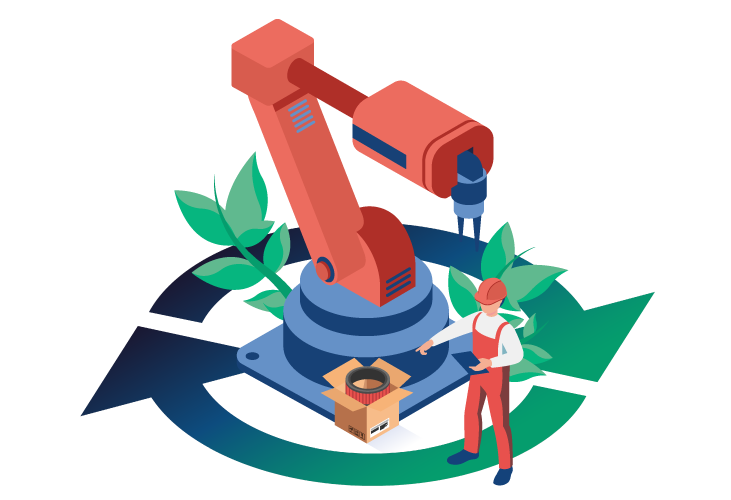
To be able to strategically pursue sustainability targets in machine construction, the
German service industry association KVD recommends a step-by-step approach:
- Define clear targets for sustainability with substeps
- Convert the targets into few, but specific, KPIs
- Use the KPIs to estimate the impact of the measures and prioritize the measures
- Implement the measures with project management and transparent communication – involve managers, employees and customers
- Check and optimize the impact of the measures on KPIs












